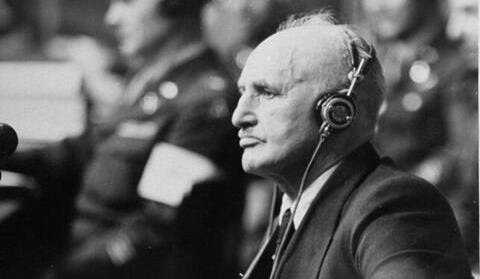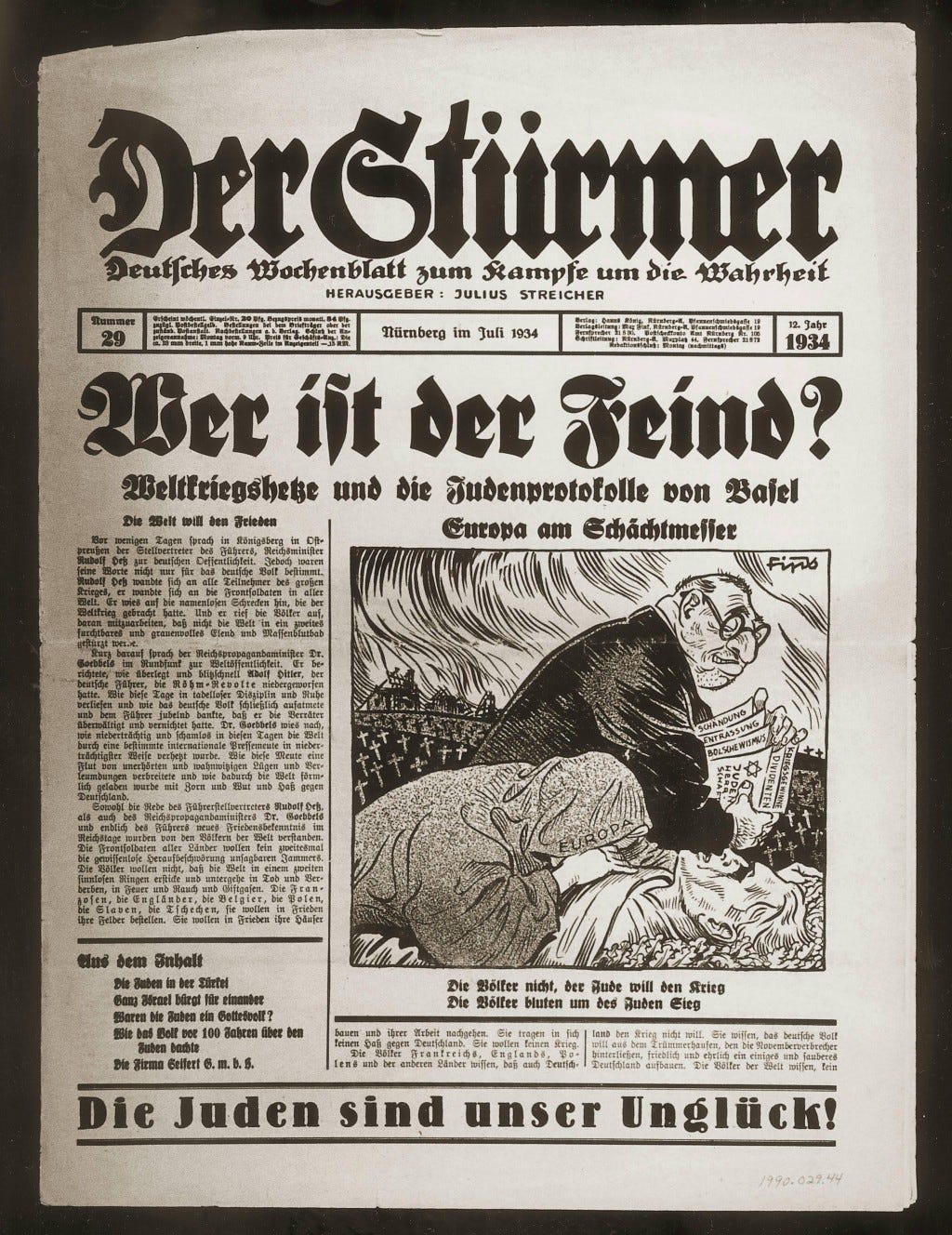Because Words Matter and Lies Kill: Julius Streicher, The Man Who Was Hanged for His Words
When Lies Become Weapons: The Price of Incitement in an Age of Misinformation
On October 16, 1946, Julius Streicher stood on the gallows in Nuremberg. He was not a general. He never commanded an army. He didn’t sign deportation orders or operate gas chambers. But he was hanged for crimes against humanity.
His weapon was not a gun. It was a pen and ink.
As the publisher of the virulently antisemitic newspaper Der Stürmer, Streicher relentlessly dehumanized Jews. His cartoons depicted grotesque caricatures. His headlines screamed conspiracies. His editorials encouraged hatred. And though he did not kill with his own hands, the Nuremberg Tribunal made clear: the lies he told fueled the murder machine. His incitement, they said, paved the way to the Holocaust.
He was convicted not for what he did, but for what he made others believe.
Because today, we are once again witnessing a barrage of lies. Not from Nazi presses, but from podiums at the United Nations. From op-ed pages of major newspapers and media organizations. From university lecture halls and international NGOs.
Israel, the world's only Jewish state, fighting an existential war after the worse terror attack in modern history, is portrayed not merely as flawed, but as demonic. A regime of pure evil. Accused of genocide, apartheid, ethnic cleansing—terms that carry moral weight but are tossed like stones, untethered from facts. We are told that the IDF targets children, that Zionism is racism, that the Jewish right to self-determination is colonialism in disguise.
Four years ago today, the United Nations launched what would become one of the most brazenly biased initiatives in its history: the so-called Commission of Inquiry led by Navi Pillay. Billed as an “independent” investigation, it has functioned as a permanent inquisition against the world’s only Jewish state—without precedent, without balance, and without end in sight. No other nation has been subjected to such an open-ended mandate of scrutiny and condemnation. This is not accountability; it is persecution masquerading as principle. Like Streicher’s Stürmer, the commission cloaks its obsession in the language of justice, but its purpose is clear: to isolate, delegitimize, and ultimately dismantle Israel through the steady drip of falsehoods dressed as findings. The hate is institutional now—and history is watching.
And once again, these lies have consequences.
They justify the firebombing of synagogues in Europe. They inspire mobs chanting for intifada in Western cities and to murder Israeli diplomats on the streets of D.C. They embolden terrorists who behead civilians and livestream their crimes. They paralyze global institutions that should know better, but instead repeat blood libels dressed up as international concern.
To the journalists who spread these narratives without scrutiny: remember Julius Streicher.
To the NGOs that label terror as “resistance”: remember Julius Streicher.
To the diplomats and world leaders who echo slanders without evidence: remember Julius Streicher.
There is a difference between criticism and incitement. One protects democracy; the other poisons it. One seeks truth; the other seeks scapegoats. And when propaganda fuels hatred, and hatred fuels violence, we cannot pretend there is no blood on the hands of those who lit the fire.
So the next time you hear someone accuse Israel of genocide, ask for evidence—not slogans. The next time the UN passes a resolution condemning the Jewish state while ignoring atrocities elsewhere, ask why. And the next time someone says that speech can’t be violence, remember the man who was hanged for what he wrote. Words matter. Lies kill. The Nuremberg Trials taught us that.
Just as in World War II, those who spread today’s lies may think themselves untouchable—shielded by titles, platforms, or diplomatic immunity. But history has a long memory, and justice, though slow, is not blind. The architects of incitement will one day answer for the hatred they sow. The pen can be as deadly as the sword—and those who wield it to demonize, dehumanize, and destroy will not escape the reckoning forever.






